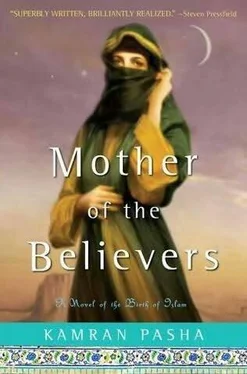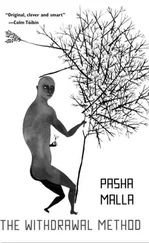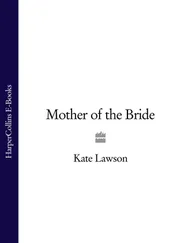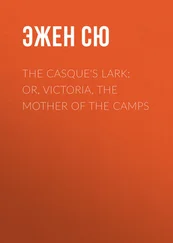The first blood between the sons of Isaac and Ishmael had been spilled. And I had a dark vision in my mind’s eye that the trickle of death would soon become a flood.
The peace of Medina had been shattered from within, and retribution was swift. An army of a thousand men surrounded the walled district to the southwest that housed the Jewish tribe.
In the days following the marketplace brawl, the Messenger had sent Ali to negotiate blood payment to resolve the tensions between the Muslims and Jews. Each side had lost a man in the scuffle, and according to the terms of the treaty, the matter had to be submitted to Muhammad for arbitration. But the Jews of Bani Qaynuqa turned back Ali, saying they considered the alliance void after the murder of one of their men by a Muslim.
Tensions had risen as the Jews barricaded themselves inside their walls, and there were rumors that that the chiefs of Qaynuqa were sending urgent messages to Abdallah ibn Ubayy, the treacherous leader of the Khazraj. The Jews allegedly promised that they could marshal seven hundred men to their defense. If the Khazraj matched them, then perhaps together they could wrest the oasis from the sorcerer.
But if such an offer was indeed made, Ibn Ubayy declined it. Though we had heard talk that he had been happy to incite the Jews to do his dirty work in antagonizing Muhammad, Ibn Ubayy was not the kind of man who would be willing to risk his own life to settle their scores.
And so the day had come when the Bani Qaynuqa were friendless and alone. The Messenger considered their renunciation of his treaty an act of war and had besieged the settlement. The Muslims had cut off the roads leading to their sister Jewish tribes, the Bani Nadir and the Bani Qurayza, and the fortress had no independent wells. Soon the Bani Qaynuqa would run out of water, and they would have to fight or surrender.
I watched as the Prophet strode among the Muslim soldiers who surrounded the gates of the Jewish fortress. He was dressed in glittering mail made of concentric steel rings, and his helmet covered most of his face. His black eyes glistened from behind his steel visor.
A battering ram had been devised to tear down the heavy wooden doors that protected the Qaynuqa. It was a long pole made of a series of thick palm trunks tied together and reinforced with steel plates. Thirty of the strongest Muslims would join forces to pummel the gates until they fell and the fortress was overrun. The soldiers had been ordered to kill any man who was armed but to spare the women and the children.
As war drums resounded, announcing to the Bani Qaynuqa their approaching end, I saw a man who was dressed in flowing scarlet robes approach the Messenger. It was Ibn Ubayy come to bargain on behalf of the Jews, whom he would not defend with arms.
He pushed past Umar and Hamza, who scowled at his presence, and walked up to the Prophet, addressing him from behind as he surveyed his men.
“O Muhammad, treat my allies well.”
The Messenger glanced at Ibn Ubayy briefly and then continued on his tour of the company, his presence inspiring courage among the warriors.
But Ibn Ubayy was persistent. He followed the Prophet and shouted for all to hear.
“Muhammad! Have mercy on my allies!”
The Messenger pretended not to hear him, even though his cries could have woken the dead in Jannat al-Baqi, the graveyard outside Medina.
Frustrated, Ibn Ubayy came up behind the Messenger and grabbed him by the collar of his mail shirt.
“Listen to me!”
Instantly a dozen swords were drawn and held to Ibn Ubayy’s neck. And yet he held on firmly. The Prophet turned to face him and a silence so great fell over the field that all I could hear was my pounding heart.
“Let go.” There was more danger in those two words than any lengthy tirade could have held.
And yet Ibn Ubayy, for all his flaws, could not be called a coward. Feeling the prick of blades against the skin of his neck and back, he nonetheless refused to release the Prophet’s armor.
“By God I will not, until you promise to treat them well,” he said, and I saw in his face what appeared to be real pain. “The Bani Qaynuqa have four hundred men without mail and three hundred armored. Not much of an army, but in all the years before you came to Medina, those men were my sole protection from my enemies. This Arab lives because those Jews saved him.”
He paused and his eyes glistened with grief. If he was performing, he was an astounding actor.
“Seven hundred men who kept me alive before you brought peace to this oasis,” he said, his voice choking. “Will you cut them down in one morning?”
The Messenger looked at him. I could not see his face through the visor of the helmet, but I saw the tension in his shoulders fall as ibn Ubayy’s plea touched his heart.
When he spoke, his voice was firm but compassionate.
“I give you their lives,” was all he said.
Ibn Ubayy’s hand fell and the Messenger walked away. He stood for a while staring after the man who had stolen his crown, who ruled Medina while he watched from the sidelines. I do not know what he was thinking, but he looked shaken and confused. Finally, he turned toward the gates of the fortress and went to deliver the good news to his erstwhile allies.
Safiya stood by the desert road, watching her kinsmen from the tribe of Bani Qaynuqa abandon their homes and leave the city forever. They loaded their carpets and small furnishings on the back of hundreds of camels and donkeys, along with whatever household items they could carry-utensils, scrolls, small pots and pans. Heavy bundles contained food for the trek through the wilderness, including stores of dates, olives, and dried meats. Her eyes caught the eye of a young boy sitting on a mule, crying that he wanted to stay, but his mother shushed him and told him to always look forward, never back.
It was happening again, Safiya thought bitterly, just as her father had feared. The world was always changing, but one thing remained the same-Jews were being expelled from their homes. She felt a flash of anger at Muhammad, and she wanted to embrace it and fan its fire until it consumed her heart. But she couldn’t silence the small voice within her that said her people were not blameless in this matter. Had they listened to wiser voices like her own, they would have welcomed the Muslims and become their allies in bringing peace and prosperity to Arabia. But their own fears, the centuries of loss and betrayal, had conditioned them to resist change. They had sought to undermine the new order and inevitably brought upon themselves its wrath.
Tears in her eyes, she turned to the elderly rabbi Husayn ibn Sallam, himself a member of the Qaynuqa, but one who had been granted express permission to remain because of his cordial relationship with Muhammad.
“What will happen to them?” she asked softly.
Ibn Sallam wiped his nose on his sleeve. His eyes were red but dry, and she guessed that he had no more tears left to shed.
“They will go north to Syria,” he said quietly. “Our people still have a few settlements that survive under Byzantine rule. They will find refuge there.”
“But you will stay.” It was not a question, and there was no hint of reproach in her voice, but the rabbi flinched as if he had been struck.
“I have to.”
She had not expected this as a response.
“I don’t understand.”
Ibn Sallam sighed heavily.
“The sands of time are shifting, but I fear that our people do not see it,” he said as if he had read her thoughts. “The Bani Qaynuqa let their pride blind them to the new reality. I will stay and counsel the Bani Nadir and the Bani Qurayza to flow with the stream of history, not against it.”
Читать дальше












